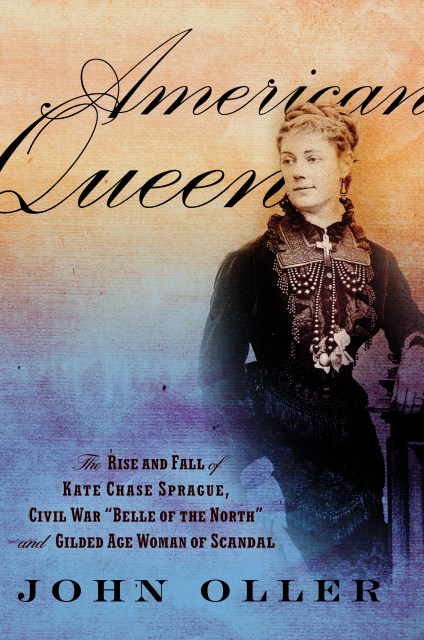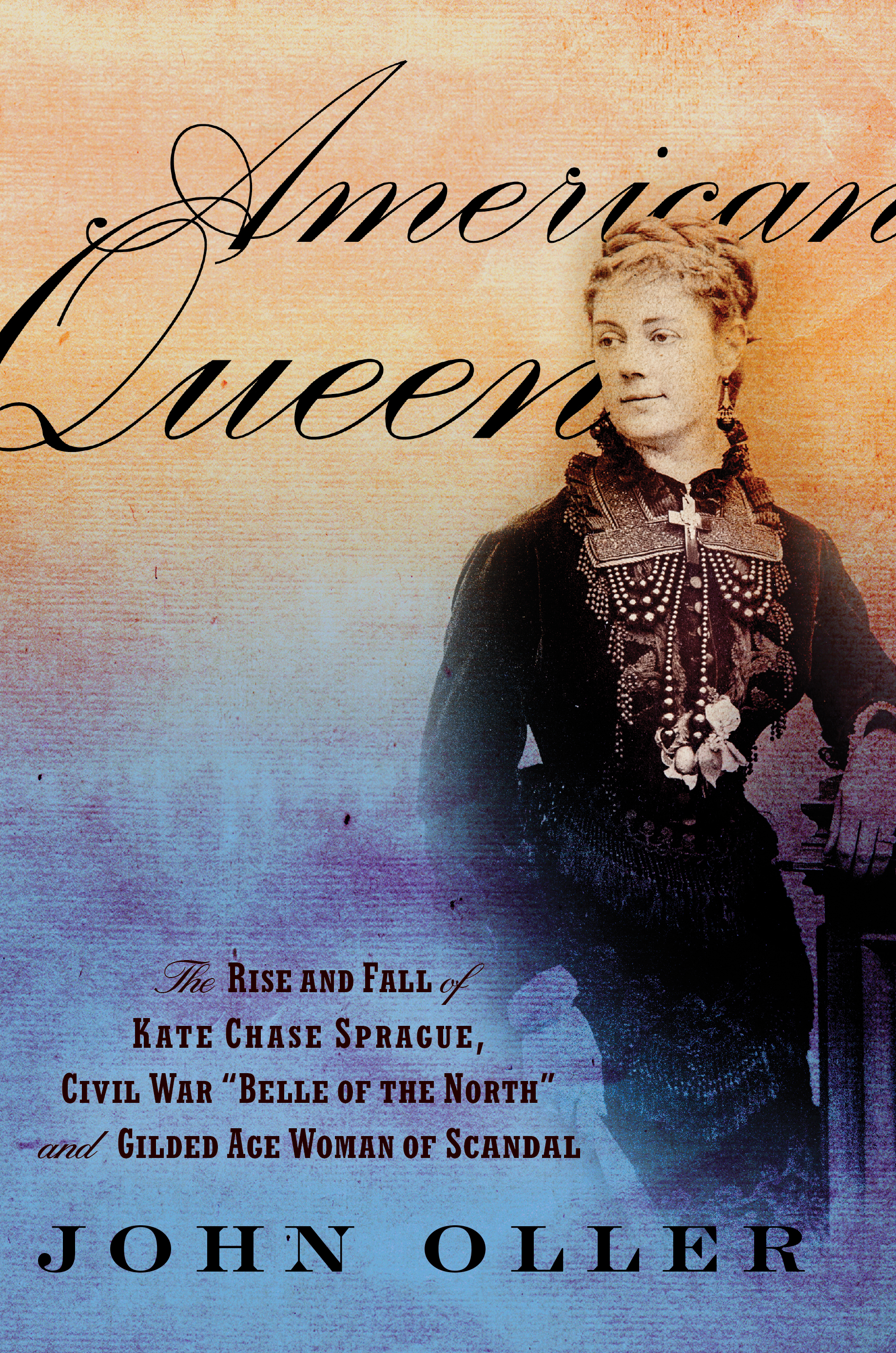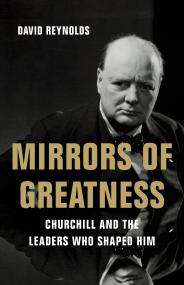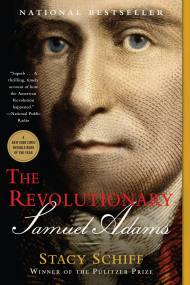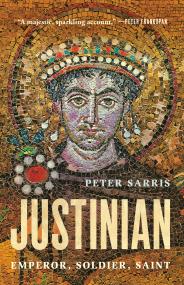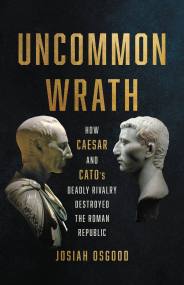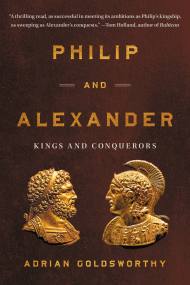Promotion
Use code MOM24 for 20% off site wide + free shipping over $45
American Queen
The Rise and Fall of Kate Chase Sprague -- Civil War "Belle of the North" and Gilded Age Woman of Scandal
Contributors
By John Oller
Formats and Prices
Price
$14.99Price
$19.99 CADFormat
Format:
- ebook $14.99 $19.99 CAD
- Hardcover $25.99 $29.00 CAD
This item is a preorder. Your payment method will be charged immediately, and the product is expected to ship on or around October 28, 2014. This date is subject to change due to shipping delays beyond our control.
Also available from:
Had People magazine been around during the Civil War and after, Kate Chase would have made its “Most Beautiful” and “Most Intriguing” lists every year.
Kate Chase, the charismatic daughter of Abraham Lincoln's treasury secretary, enjoyed unprecedented political power for a woman. As her widowed father's hostess, she set up a rival “court” against Mary Lincoln in hopes of making her father president and herself his First Lady. To facilitate that goal, she married one of the richest men in the country, the handsome “boy governor” of Rhode Island, in the social event of the Civil War. But when William Sprague turned out to be less of a prince as a husband, she found comfort in the arms of a powerful married senator. The ensuing scandal ended her virtual royalty, leaving her a social outcast who died in poverty. Yet in her final years she would find both greater authenticity and the inner peace that had always eluded her.
Set against the seductive allure of the Civil War and Gilded Age, Kate Chase Sprague's dramatic story is one of ambition and tragedy involving some of the most famous personalities in American history. In this beautifully written and meticulously researched biography, drawing on much unpublished material, John Oller captures the tumultuous and passionate life of a woman who was a century ahead of her time.
Kate Chase, the charismatic daughter of Abraham Lincoln's treasury secretary, enjoyed unprecedented political power for a woman. As her widowed father's hostess, she set up a rival “court” against Mary Lincoln in hopes of making her father president and herself his First Lady. To facilitate that goal, she married one of the richest men in the country, the handsome “boy governor” of Rhode Island, in the social event of the Civil War. But when William Sprague turned out to be less of a prince as a husband, she found comfort in the arms of a powerful married senator. The ensuing scandal ended her virtual royalty, leaving her a social outcast who died in poverty. Yet in her final years she would find both greater authenticity and the inner peace that had always eluded her.
Set against the seductive allure of the Civil War and Gilded Age, Kate Chase Sprague's dramatic story is one of ambition and tragedy involving some of the most famous personalities in American history. In this beautifully written and meticulously researched biography, drawing on much unpublished material, John Oller captures the tumultuous and passionate life of a woman who was a century ahead of her time.
Genre:
-
“A fascinating portrait of a strong, accomplished, and resilient woman, who was ahead of her time—and happens to be my great-great grandmother!”—Kris Carr, New York Times bestselling author and motivational speaker
“The story of Kate Chase literally jumps off the page in John Oller's brilliant evocation of her tumultuous life. She is the Northern Scarlett O'Hara, whose political and social ambitions—and machinations worthy of Machiavelli—ultimately consume her. Oller's skilled and even-handed treatment of his subject allows the reader to empathize with this fascinating and complex woman despite her flaws.”—Heath Hardage Lee, author of Winnie Davis: Daughter of the Lost Cause
“John Oller's book adds many new dimensions to one of the most famous women in the United States in the nineteenth century.”—Richard Vangermeersch, Professor Emeritus, University of Rhode Island
Kirkus, 10/15/14
“A well-researched, thoughtful biography of a woman who ‘became entirely her own person, a rare feat for women of her day.'” -
Library Journal starred review, 10/15/14
“Well written, fast paced, and with a compelling attention to detail, this work should be a fascinating read for Civil War buffs, fans of Doris Kearns Goodwin's Team of Rivals (in which Salmon Chase is a main character), and Jennifer Chiaverini's Mrs. Lincoln's Rival.”
Publishers Weekly, 10/1/14
“Oller details Sprague's fascinating life, introducing readers to an inspiring woman in spite of her faults: haughtiness; personal, rather than ideological, politics; financial profligacy…Oller offers an accessible, attention-grabbing work”
Chicago Tribune, 11/6/14
“Nuanced and finely balanced.”
WhatWouldTheFoundersThink.com, 11/1/14
“John Oller has written an absorbing book…[he] brings into focus a master of political intrigue and a beautiful, ambitious, resourceful woman who was determined to live life on her own terms. Oller's book evokes an era and the American Queen who, for a time, ruled it.”
Providence Journal, 12/14/14
“[An] immensely readable and grippingly sumptuous biography…Fascinating.”
Hudson Valley News, 11/26/14
“[A] lively book…It's a joy to say that a biography, even of someone you hadn't heard of before, can be good fun all the way through.” -
Minneapolis Star Tribune, 12/28/14
“[Kate Chase Sprague] is a fit subject for a biography because of her commanding presence in an era when women were not expected to have any say in public affairs…Oller commands his sources in a riveting narrative that is all the more persuasive because he does not make large claims for his subject. It is enough, he realizes, for a biography to portray and assess a remarkable human being—one who struggled with and overcame many of the confining conventions of her age—in her own terms.”
Adventures with Words, 10/28/14
“A surprising biography…American Queen should be required reading for anyone taking a class in American history, anyone interested in this period of American history, and any woman who wants to know what ignoring societal limitations looks like.”
Fangirl Nation, 10/27/14
“Kate Chase is probably the most tragic story you've never heard from American History…Oller's book is sympathetic and kind to a woman that men wanted and women wanted to be for most of her days in Washington DC…If you've never heard of Kate Chase or her contributions to American politics, now is the time to hear her story.” -
Portland Book Review, 1/16/15
“Oller, who has worked closely with Sprague's granddaughter, attempts to dispel the typical opinions that her life was tragic by instead focusing on her strength of spirit and accomplishments for a woman of that era.”
Civil War Book Review, Winter 2015
“Kate Chase was an interesting woman in an age when women were not supposed to be interesting…Oller has created an immensely readable book.”
San Francisco Book Review, 2/25
“A ripped-from-the-headlines romp through the 1800s…A fascinating look at Kate Chase Sprague…A careful and vivid biography worthy of a read.”
Civil War Monitor, 4/21/15
“Full of engaging detail and captivating characters…Yet this vivid portrait of a vivacious and complex woman who defied the dictates of her day is no mere biography. Oller weaves in fascinating details of rivalries and alliances launched in Civil War Washington which influenced political agendas during Reconstruction and what followed, the so-called Gilded Age…He also powerfully invokes the way in which the press reflected and stimulated political intrigue and downfall.”
2015 Ohioana Book Award, finalist -
Advance praise for American Queen
“Beautiful, brilliant, and wildly ambitious, Kate Chase was a master of political intrigue and behind-the-scenes power in an era when women were told to be seen and not heard. A terrific work of historical research and reconstruction, American Queen follows her fascinating but forgotten life to tell the story of the Civil War and its scandalous aftermath—its assassinations, impeachments, and sexual hijinks—from an entirely fresh perspective.”—Debby Applegate, Pulitzer Prize-winning author of The Most Famous Man in America: The Biography of Henry Ward Beecher
“No woman of her time walked as close to the power of the land as Kate Chase Sprague. None of the men in her life exceeded her in ambition and drive, or in intriguing for success. John Oller's American Queen eloquently traces her rise and fall, bringing out new material that gives context to an already rich life. Proud at her heights, unbroken by tragedy, this almost American Queen's story is as fascinating as it is improbable. In many respects this thoroughly nineteenth century woman sounds very modern, indeed.”—William C. Davis, prize-winning author
- On Sale
- Oct 28, 2014
- Page Count
- 416 pages
- Publisher
- Da Capo Press
- ISBN-13
- 9780306822810
Newsletter Signup
By clicking ‘Sign Up,’ I acknowledge that I have read and agree to Hachette Book Group’s Privacy Policy and Terms of Use
